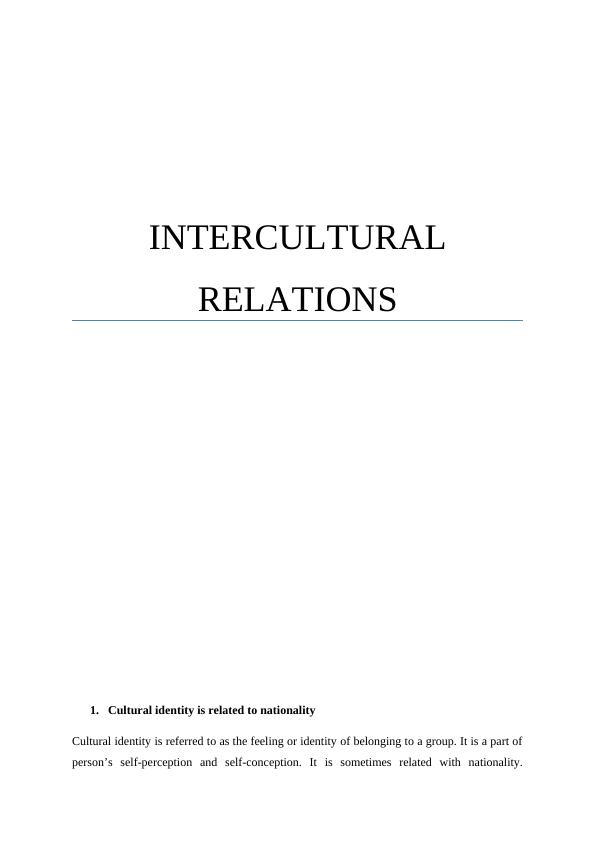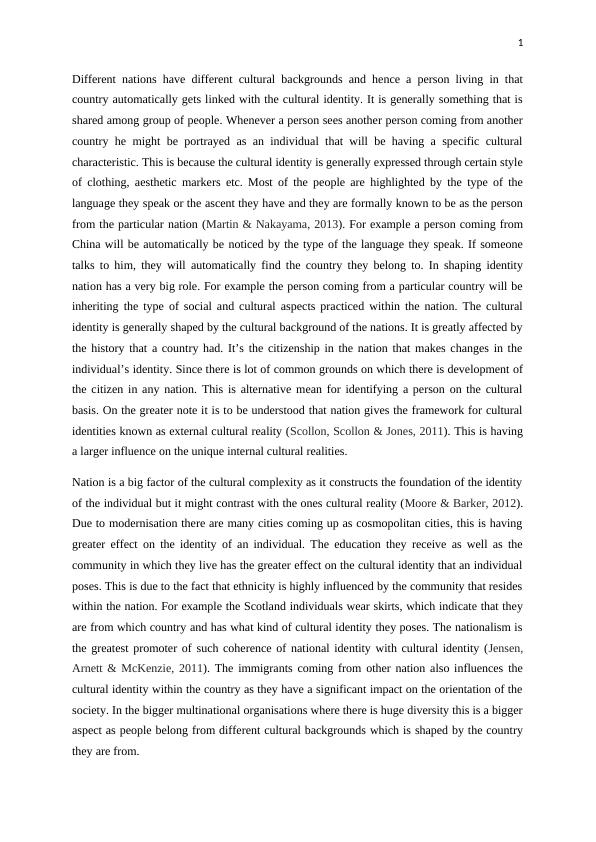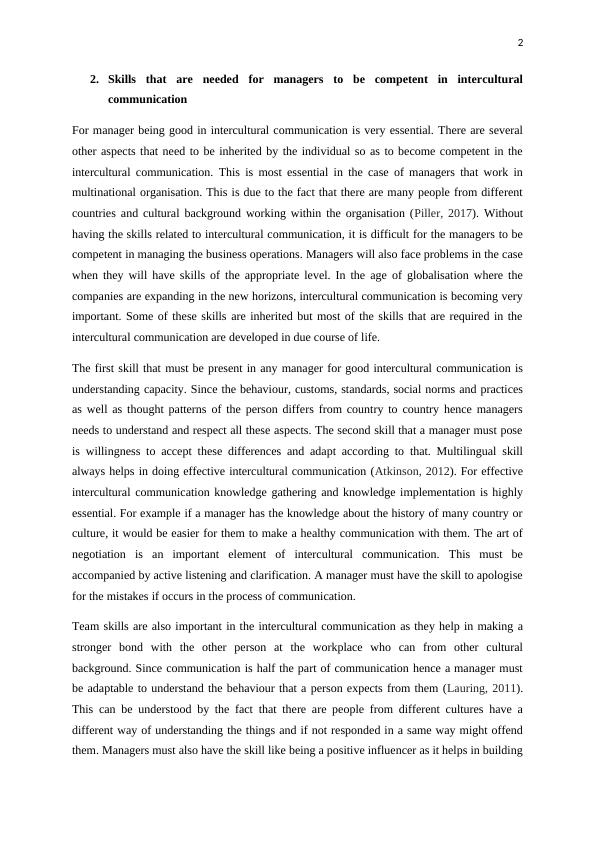Cultural Identity and Intercultural Communication in Business
Critically discuss intercultural communication theories and debates, focusing on cultural identity, skills needed for intercultural communication in a managerial context, and the complexity of intercultural business communication.
7 Pages2053 Words104 Views
Added on 2023-06-04
About This Document
This article discusses the relationship between cultural identity and nationality, the skills needed for managers to be competent in intercultural communication, and the complexity of intercultural business communication. It also explores the impact of modernization and immigration on cultural identity and the importance of understanding cultural differences in communication.
Cultural Identity and Intercultural Communication in Business
Critically discuss intercultural communication theories and debates, focusing on cultural identity, skills needed for intercultural communication in a managerial context, and the complexity of intercultural business communication.
Added on 2023-06-04
ShareRelated Documents
End of preview
Want to access all the pages? Upload your documents or become a member.
Intercultural Relations: Cultural Identity, Managerial Skills, and Communication Complexity
|6
|2009
|298
The Role of Communication in The Great Debaters Movie: A Study on Social Identity Theory
|10
|1598
|237
Multiculturalism: Strengths, Weaknesses, Opportunities, and Challenges
|5
|754
|90
Culture and Diversity Essay
|9
|2852
|25
Migration and Attachments Article 2022
|24
|6574
|10
The Role of Culture in Shaping Identity and Civic Responsibility
|5
|1277
|69



